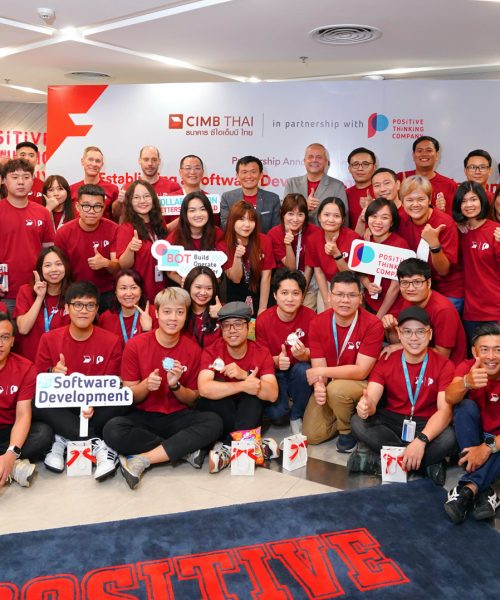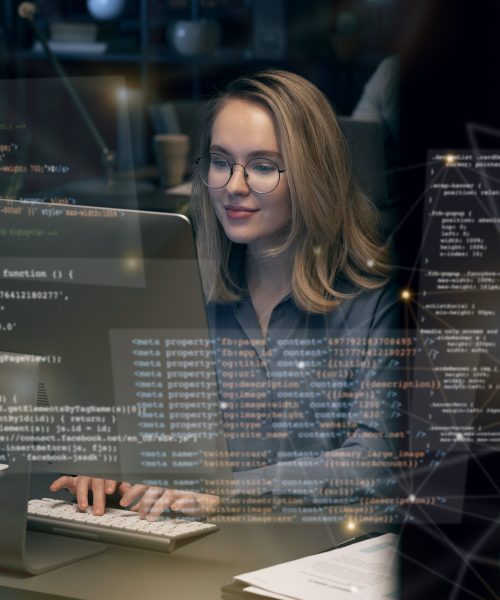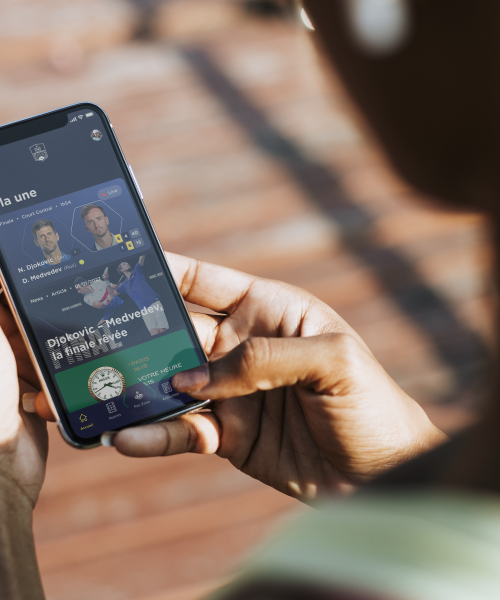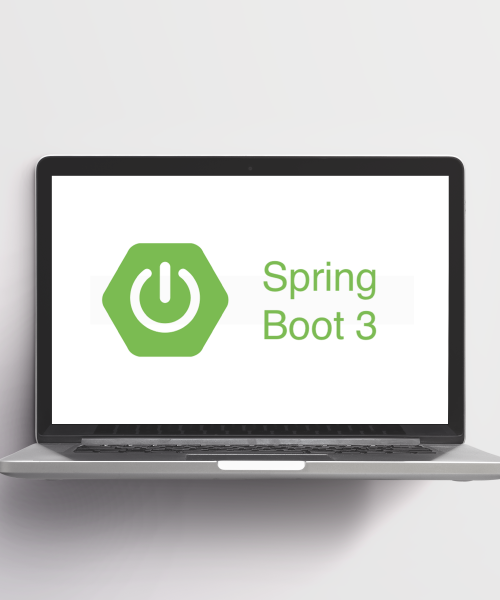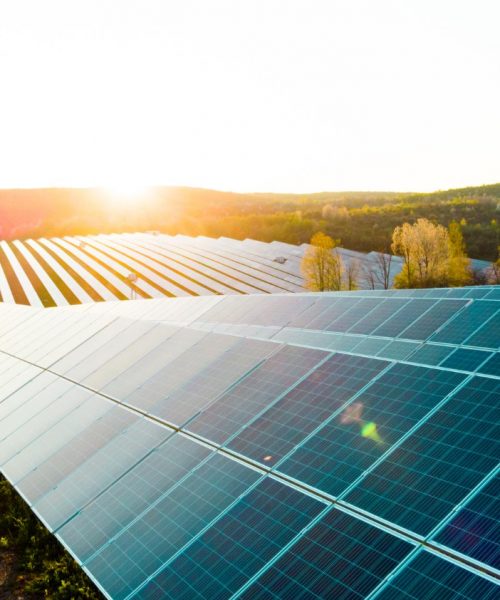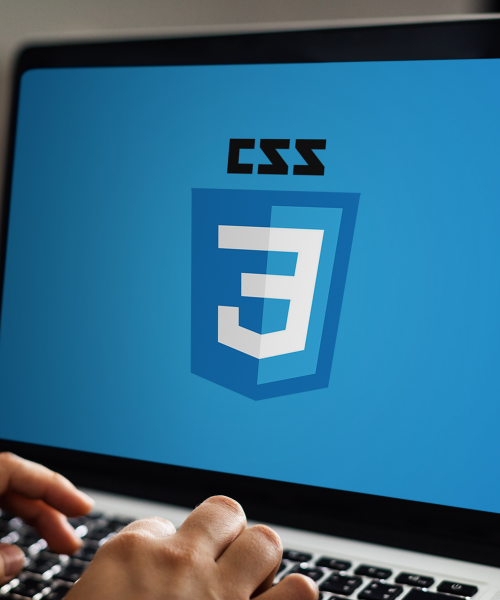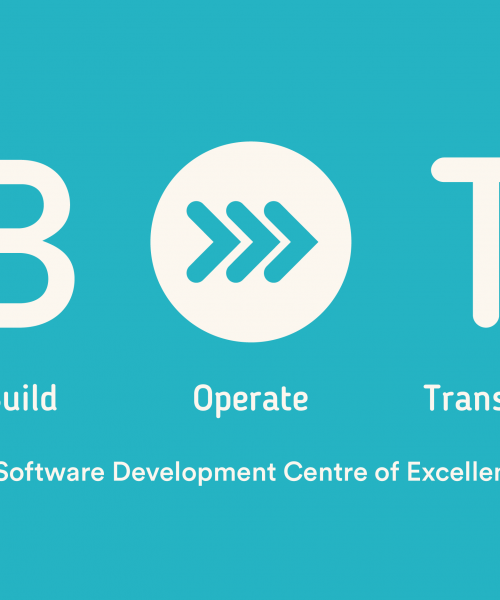Vincent, Jérôme and Jean-Baptiste are three Tech collaborators at Positive Thinking Company. In addition to their job, they are also members of the company’s CSR committee.
In this article, they share the origin of their ecological commitment and the resources that have accompanied them, on ecology in general and Green IT in particular.
They also address how their values confront the reality of their work environment. And they share best practices and tips for a more sustainable way of work in Tech.
What is your current job ?
Vincent: I have been a Java/Kotlin developer for about 5 years. I am currently on assignment for a client in the retail sector.
I mainly do back development. And I’m also developing my skills on topics related to infrastructure and devOps. This allows me to observe the waste of money and energy that can be done in this sector.
Jérôme: I am currently a Product Owner. Previously, I was a PHP/Symfony developer in the media and mobility sector.
But I had enough of the development side. In this position, there is more and more expectation of hyperspecialization in task processing, and I was less motivated to focus only on certain features. I appreciate more teamwork with all stakeholders, and taking part in discussions from the beginning of a project to achieve the development of the best possible application.
Jean-Baptiste: I am a Product Designer. I accompany a product from its conception, to its delivery and maintenance, with a UX and UI component. Everything is done in collaboration with PM/PO, developers and with advanced contact with the customer and users.
It is a polyvalent position that allows me to intervene on the entire life cycle of a product.
What was the tipping point that made you aware of environmental issues?
Vincent: When I was younger, I spent evenings playing video games while listening to videos on Youtube at the same time.
I then stumbled upon a video that presented the needs to produce as many calories in the form of vegetables as meat. And I saw the numbers: It takes 27 times more land, 47 times more electricity and 100 times more water to produce as many calories from beef as it does from eggplant.
I started checking out other videos, and it convinced me to become vegetarian, and then vegan.
From that moment on, I was also interested in all the figures on the subject of energy waste in general.
I was working as a developer in the mobility industry at the time and became aware of all the servers running for nothing. For example, for a simple web page, representing a non-critical service and consulted internally by a maximum of 5 people simultaneously, there were 4 servers of 16GB of RAM that were running constantly. This represented energy waste and also a high cost.
And it is by presenting the potential financial gain, that it was possible to make an optimization. Often the economic aspect is more attractive than the ecological one.
Jérôme: I already had a sensibility to ecological issues in my personal life. But for me it was dissociated from my professional life. And when I discovered the possible applications in my profession, I became passionate about the subject.
I started to take an interest in Green IT, thanks to a trade show: Paris Web, during which I met Frédéric Bordage during a workshop. It was in 2019, I was still a web developer at the time, and after that I became very interested in the subject.
Then, I was able to participate at two training courses on ecodesign, an internal conference given by Raphaël Lemaire and a Climate and Digital Fresk.
Several colleagues were also interested in GreenIT and we were able to feed each other through discussions, but also mutual R&D projects. And throughout this journey, I have always been keen to share my discoveries with my peers, through articles.
I also joined my company’s CSR committee. In this context, we were accompanied by the company Greenflex to pilot our approach. It also allowed me to open up to other topics related to ecology and accessibility.
Jean-Baptiste: There was no precise starting point but rather a set of synchronicities. I have always been interested in environmental issues, but without seeing the systemic side of them. It was at the time of the birth of my daughter, that I came across a lot of content around climate, energy, etc. I learned a lot and started to integrate the feedback loops and interdependencies between all topics. This was accompanied by a lot of anxiety.
At the time, I was an art director in the field of commercial real estate. And that created a strong dissonance between my work and my awareness and commitment. I wanted to continue my work, which I really enjoy, but being more aligned with my values.
I managed to combine my beliefs with employee engagement and digital design within Positive Thinking Company.
But I integrated, through reading and discussions, that digital technology also had an impact. So I started to dig and then push the subject of ecodesign and sustainable design.
What resources do you recommend to learn about the subject?
Vincent:
- No boilerplate: Through videos and podcasts, the author explains how to produce optimized and sustainable code.
- There is an energy comparison of languages that allows decisions to be made about which language to use. There is a link between speed and low energy consumption.
- I am also connected to several specialized subreddits on the Green IT subject.
- Finally, I also experiment a lot on my own. For example, before I had a NAS to manage my files. I have since replaced it with a Raspberry Pi card, of which I monitor the power consumption. My backup systems, both local and remote, consume a total of 2 continuous Watt, a total of €4 annually, compared to €60 previously.
Jérôme:
I highly recommend:
- The GreenIT community,
- French state resources: the RGESN repository and the guide to responsible digital best practices for organizations.
- MOOCs and ressources from INRIA,
- Tech conferences: They offer more and more talks related to Green IT, CSR and environmental impacts. I was able to see these in event ‘Agile en Seine’ and ‘Paris Web’ in 2022, but it is also the case of many other conferences.
Jean-Baptiste:
There is a whole galaxy of talented and competent actors who express themselves on the subject! And we must also support them.
Do you think it is possible to combine your job in Tech with your ecological commitment?
Vincent: It is possible, but first you have to convince the decision-makers. A change of mentality is necessary in everything that is architecture, but also expression and framing of the need.
Because often the proposals that intervene after the realization of the project are no longer a priority.
I am also often alone in pushing the subject. Although other people on the team agree, they are not going to propose initiatives on their own.
Jérôme: As a developer, I have the feeling that we ultimately have few impact, because we are more on optimization, and more downstream of the process. And while it is still important to have an optimized, fast, and efficient site, it is only about 20% of the impact of a digital project.
On the other hand, on the PM and PO side, there is potentially more influence because we are integrated into the upstream reflection with all stakeholders.
It is possible to make proposals that go in the direction of sobriety. But this often comes up against issues of corporate policy and strategic vision. There is therefore a balance to be found between sobriety, eco-design and economic reality.
And this applies to all sectors. Prescribers and business teams are often fond of tools with multiple functionalities, without necessarily realizing the impacts.
And unlike the creation of physical products, it is actually more difficult to realize the impact and pollution of digital. It is therefore important to raise awareness among decision-makers.
Jean-Baptiste: I still ask myself the question. But I would still say yes.
Today we are part of a society, and it would be difficult to withdraw from it. And in any case, we cannot make a total negation of what we have been and what we have built within this society.
So yes, conciliation is sometimes difficult, because it calls into question a lot of things, in terms of career, success and life project. So quite deep subjects.
My posture is that, although I am not an example, because I am still on a journey, I try to put things in place. Whether in my personal life, on my mode of consumption including the support of local and national actors, on the use of goods, my food diet, etc.
And in the professional field, I think there are also things to do. We can create digital projects that can be useful. For example, I volunteer for the association Paris en compagnie, which offers a digital product that allows elderly and isolated people to renew social contact. I am therefore convinced that I can be useful and contribute to positive projects.
There are also interesting thoughts on Tech and transition. I attended interesting talks about designers who had taken new paths: One person had left the field of design to go into flour production. Another had adopted a part-time rhythm, to continue her job as an UX Designer, and devote herself to dyeing wool during the other half of her working time.
And one had created a cooperative of designers. It is a structure set up by several people, which guarantees them administrative and financial security, but also allows them to be autonomous on the choice of their customers and their way of managing projects.
Personally, it makes me wonder a lot about the balance to be found between the need for comfort and a sustainable existence.
And I find that there is overall a lack of positive narratives around professional trajectories towards sobriety and transformation. We have a model of achievement linked to economic development, in which comfort is a vector of happiness. We should share more about enviable alternatives, which are also intermediate successes, without being in an extreme change. There are new role models to look for and put forward.
What responsible actions can be applied in your business?
Vincent:
- I pushed for our servers to turn off from 7 p.m. until 7 a.m. This also represents a monthly saving of €3,000. You can also consider turning off certain apps or services on weekends. For example, for applications for internal use, only used on weekdays.
I also inquire about a Start on demand technology, proposed by Kubernetes. It allows servers to be shut down over a set period of time, and to be turned back on when a call is made by a user.
The service is therefore available but does not necessarily respond instantly, and as soon as there is no more activity for a certain period of time, the servers shut down again. This can also keep servers turned off and back on only for a scheduled automatic query to run, before shutting down again. - We can also note the use of a compiled language like RUST, which is a fast, secure language with low power consumption.
I have already given training and initiations to RUST to some acquaintances, and I would like to become a trainer for my colleagues. - There are also plenty of existing solutions to measure its impact and identify optimizations, especially with Kubernetes monitoring or Google Cloud Platform.
- Another point is not to use video during video meetings. This uses a lot of bandwidth. For example, a video of 25 people is equivalent to 25 x 25 streams, or 625 video streams. Knowing that a video stream is about 100 times more energy-intensive than an audio stream, there is 10,000 times more data exchanged!
Jérôme:
- ‘Is this a relevant feature? Will it be used?’ These questions should be asked at the beginning of each project. Even if it can call into question the policy and business model of the company and that these are sometimes sensitive subjects.
- And in addition to this questioning and evangelization, as a PO we can at least optimize and try to implement good practices of accessibility, performance and clean design with a simple and clear user journey.
I would like to be able to do more, but for the moment I do not yet feel a strong interest among customers on ecodesign topics.
I notice, however, that more and more of us are taking up the subject. And today the solutions exist! We are fortunate to have advanced reflections on Green IT, including two standards supported by the French State including an audit tool. We have access to solid foundations, tools and associations involved. We are therefore not isolated idealists, there is a structured approach with resources to be able to act.
- Ecology should also be taken into account in all annual reports, by integrating measurable KPIs, and likewise in projects.
- And it may also be possible to create or integrate into your company a CSR or climate group with time and dedicated budget, to move forward on these topics internally.
Jean-Baptiste:
- First, I acknowledged the fact that there are sectors for which I do not wish to work, such as the fossil fuel industry and retail, such as mass distribution and fast fashion. Because I do not wish to put my skills to their contribution. I would like to be useful and work for more virtuous companies. Even if this is not always the case on all projects.
- And on a daily basis, I have a proactive approach with customers. I am trying to put the subject of ecodesign on the table, with varying degrees of success. I ask them about their level of maturity, then I propose to think about products differently, to limit the functionalities and to be more economical.
I try to combine this with economics, by having an eco-designed approach that focuses on the core functionality of the product. This is often complex, as it can run against growth objectives. It therefore requires alignment at all levels: corporate strategy, business development, middle management, etc.
But we must remain pedagogues. We can also rely on numbers, case studies of eco-designed digital products that succeed in doing more with less.
It is important to discuss the subject and propose solutions. But if it blocks, it is better not to be stubborn and try again on the next project. And perhaps the fact that we opened the discussion will have consequences later.
What obstacles do you encounter in their implementation?
Vincent: Money is often the only argument that can be heard. It is therefore a difficulty, because if we do not have a numerical argument in terms of economy, it is often not enough to convince. Money is the only driver, and even if the solution works well, we do not necessarily see the point of changing it. Progress is therefore sluggish.
And at my level, I have no other option than persuasion. But since I have no hierarchical power, refusals are not even necessarily argued.
The interlocutors in front are also often business, and we do not necessarily have the same concerns.
This can be frustrating, and create an imbalance between one’s daily work and personal commitment. That’s why I want to turn to projects more aligned with my values.
Jérôme: These convictions really need to be supported by management so that they can be translated into concrete and impactful actions.
As a developer, we sometimes intervene a little late in the process to really have weight on the technical decisions made upstream. It is therefore difficult to impose a choice. You must first convince the other people on the team, including the project manager, and possibly go up higher in the hierarchy. It requires an important work of evangelization, which not everyone is ready to carry out on so many levels.
And when I had the opportunity to make proposals, I also met few interlocutors ready for this questioning. The primary interest is more financial, with services that must be profitable.
But often, there are still people, developers and designers, aware and who put things in place on their side. Maybe it may be easier to be self-employed. But for the moment there is a lack of power of influence on decision-makers, and of a real will to seize the subject on their part.
Jean-Baptiste: There is a big topic of pedagogy on the customer side, which is not always obvious. The ecological impact of digital technology often remains a somewhat peripheral subject. And there are often many actors who come into play and need to be lined up to move forward.
Especially since these topics require rethinking the strategic vision of the company. Because it is considering that we potentially arrive at a critical choice on the growth of the company in terms of size or revenue.
And it is hard to question yourself, especially in an ultra-competitive context.
The problem therefore often does not come from people or professions, but directly from economic models.
What advice can you give to tech players to move towards a more responsible digital system?
Vincent:
- There are companies that are really interested and involved in the subject. Even if the first argument is sometimes also money, these companies understand that in the long run the cost of IT is lower by directly applying best practices.
And if some IT teams can implement responsible approaches, it is possible to do so and further extend these practices. - It is therefore important to share with peers and expand your circle of influence. You have to push to show that it works and encourage others to do the same, until it becomes the norm.
Jérôme:
- I advise all actors to embark on a Digital Fresk. This is a 3 hours serious game that allows you to be aware of environmental issues and of the impacts of digital technology. This fresk also makes it possible to bring out ideas for practical actions to be implemented next.
- It is also important to find internal relays and open discussions on the subject.
- But to convince, it can sometimes be wise not to put ecology forward head-on, and to move forward with parallel arguments. Eco-designing a site allows, for example, to increase its performance, by having a light and faster site. We can therefore press on performance gains. And a simple and efficient site also requires lower hosting costs and therefore saves money.
These arguments, which are based on business issues, can be easily heard, and make it possible to design a more sober site.
Jean-Baptiste:
- First of all, I consider it essential to be informed!
- Apart from shared or existing resources, I also recommend making fresk, climate and digital one, which make it possible to understand the links and consequences between the elements. Even being already aware of these issues, the collective dimension of these workshops brings stimulating moments.
- It is also important to do your carbon footprint and realize the impact of your choices. You can’t necessarily change everything at once, and pull all the levers of action at the same time.
But it is necessary to identify the areas in which we can contribute to reducing its impact, and to address them as we go along. And also to redo balance sheets or the account of its actions to follow their evolution and sustainability.
After small gestures are absolutely necessary but will not be enough. But they already make it possible to be aligned and consistent with its commitments. - And after these first stages of information, assessment and implementation of individual measures, there are other levers such as collective, associative and collective commitments.
- And also, to broaden the impact of his awareness, it is essential to talk about it. Without necessarily evangelizing, but it allows both to feel that we are not alone, even if we are not all at the same point, and that there is still a collective awareness and a collective desire to go towards the better. It also helps to relieve some of your anxiety.
We regularly publish articles on topics of web and mobile product development, data and analytics, security, cloud, hyperautomation and digital workplace. Follow us on Medium to be notified of the next articles and carry out your professional watch.
You can also find our publications and news via our newsletter, as well as our various social networks: LinkedIn, Twitter, Youtube, Twitch and Instagram.
Want to know more? Check out more of our website and our job offers.

